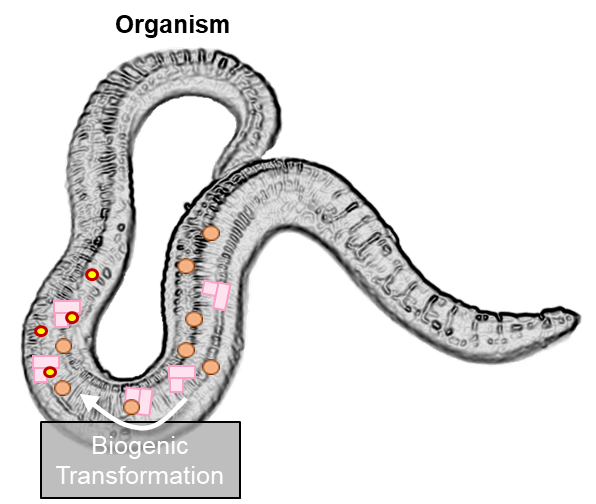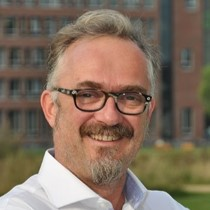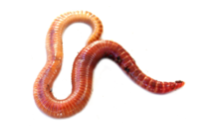Biogenic formation and transformation
Particulate metal found in an organism may resemble the nanomaterial (NM) present in the environmental milieu. However, it may differ from the original particles to which the organism was exposed. Indeed, a portion of the particulate metal stored in granules in the organism may be the result of biogenic formation from accumulated ions.
- Metal nanomaterials may dissolve in the environment and release ions.
- Organisms then may potentially uptake original and transformed nanoparticles, and also released ions.
- The latter may then be stored in granules as a result of biogenic formation of particulate forms of the metal.
- Particulate forms may also be formed by precipitation of the metal in particles, together with counter-ions.
Differences between original NM to which organisms are exposed, and the actual material found in an organism, otherwise may be due to biogenic transformation. An example of such physico-chemical transformation of nanomaterial occurring within the organism is alteration of the corona, due to e.g. proteins binding to the particle or replacing the existing corona. Furthermore, various biological responses, normally induced in organisms upon metal exposure, may affect metal NMs once they are taken up by the organism. An example is the production of proteins with high affinity to metal ions, e.g metallothionein. Metal ions that bind to this type of protein take on a less toxic form which allows them to be stored by organisms.
Occurs in |
|
 |
|
Fate descriptors |
|
|
Fate descriptors are still under investigation. Internal biogenic transformation strongly depends on the type of NM and the organism involved. |
Read more |
Read also |
|
|
Baccaro et al. 2018. Ageing, dissolution and biogenic formation of nanoparticles: how do these factors affect the uptake kinetics of silver nanoparticles in earthworms? Environmental Science: Nano. DOI:10.1039/c7en01212h. |
Contact

Nico van den Brink
Email: Nico.vandenbrink@wur.nl
 Marta Baccaro
Marta Baccaro

